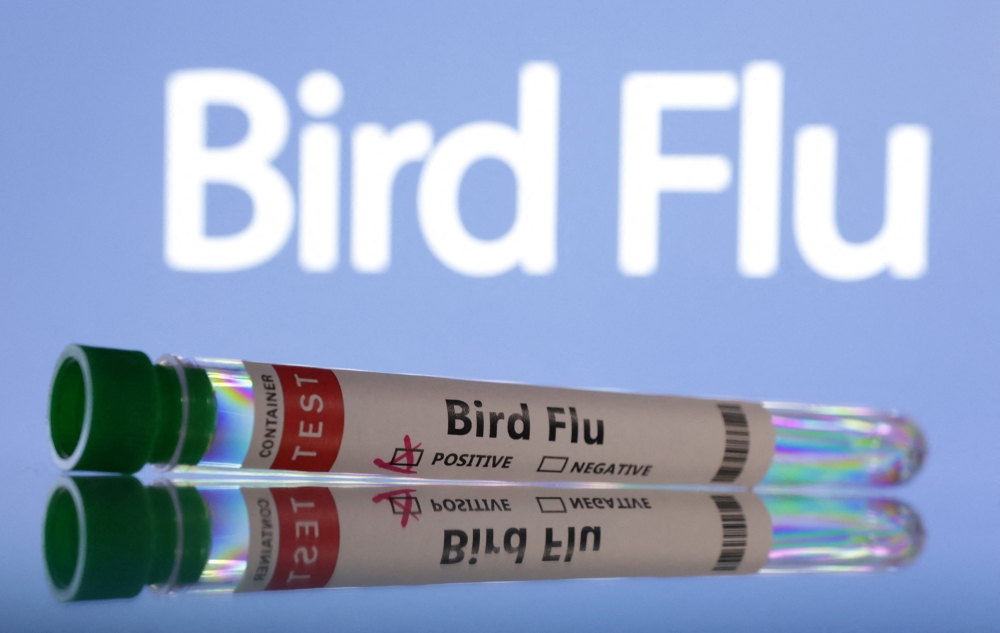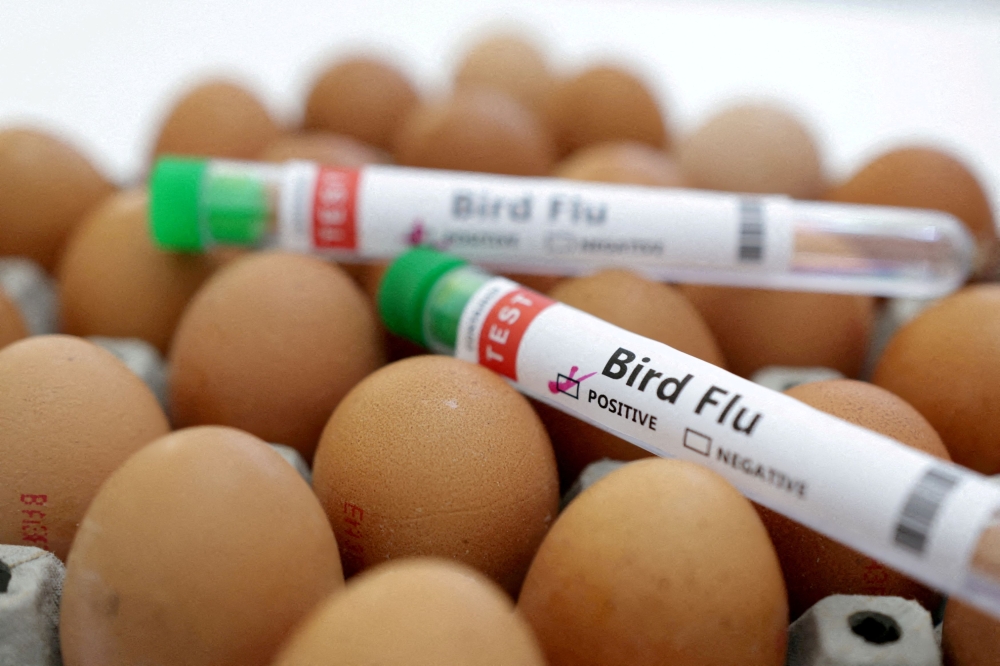- Singapore’s egg farms have strict biosecurity measures like full-body showers and disinfectant foot dips to prevent the spread of avian influenza.
- The spread of bird flu poses a threat to Singapore’s plans to expand its agri-food sector.
- Industry leaders urge authorities to consider HPAI vaccinations for local poultry, citing concerns about the disease spreading from migratory birds.
- If bird flu reaches Singapore, it could severely impact the country’s egg supply, potentially causing millions in losses for local farms.
KUALA LUMPUR, Aug 31 — In Singapore’s north-west, three egg farms, including Seng Choon Farm, operate near each other in Lim Chu Kang, a largely rural area marked for high-tech agri-food development.
These farms aim to boost Singapore’s food security by increasing production, according to CNA.
However, the spread of avian influenza, or bird flu, poses a threat to these plans, as the disease has killed or led to the culling of millions of poultry globally in recent years.
“Humans can act as mechanical vectors, meaning they can carry the virus on their skin, clothing or equipment. This can potentially lead to the spread of the virus to other birds,” Boehringer Ingelheim head of poultry business for Asean, South Korea, Australia, and New Zealand Dr Michael Banawa explained.
The disease, mainly carried by migratory water birds, has also started infecting mammals such as alpacas, house cats and cows.
Human cases of bird flu have been reported in nearby countries, but Singapore remains free from the disease.
To keep bird flu at bay, Singapore’s egg farms have implemented strict biosecurity measures.

At Seng Choon Farm, access to the production area is highly restricted, and only essential visitors and workers are allowed in.
Visitors and workers must undergo a full-body shower, wear safety gear, and pass through a disinfectant mist and foot-dip before entering the zone where some 800,000 hens are kept.
Biosecurity measures for entering the egg farm production zone
- Full-body shower: Individuals must take a full-body shower outside the production zone.
- Safety attire: After the shower, individuals change into provided safety attire, including hair nets, rubber boots, latex gloves, and masks.
- Disinfectant mist and foot-dip: Upon entry, individuals pass through an area with an automated disinfectant mist and foot-dip to kill harmful microorganisms.
- No recent bird contact: Entry is restricted to those who have not been in contact with other birds or avian premises in the preceding three days.
- House-specific boots: Once inside, workers change into boots specific to each hen house, which are colour-coded to distinguish indoor from outdoor use.
Eggs are transported via conveyor belts to minimise human contact where possible, while ventilation systems in hen houses prevent contact with wild birds.
Seng Choon Farm veterinarian Dr Lai Jun Yu described the farm’s approach: “Staff are assigned to look after one to two houses, and they can only go into the assigned houses.”
“For each house, there is designated equipment so there is no sharing of any tools or equipment between the houses,” she added.
This helps prevent cross-contamination.
The farm also vaccinates chicks against diseases like Newcastle disease using eye drops and follows a tailored vaccination programme, according to Dr Lai.
The Singapore Food Agency (SFA) and Animal & Veterinary Service (AVS) only allow imports from regions not affected by highly pathogenic avian influenza (HPAI).
Infected products must be heat-treated to kill the virus before importation.
Despite these precautions, farm officials remain concerned.

N&N Agriculture CEO Ma Chin Chew urged authorities to decide on vaccinating local poultry against HPAI, citing developments in Australia as “worrying.”
Chew’s Agriculture general manager Chew Zi Xuan noted that while his poultry is vaccinated against H9N2, an HPAI vaccination is still under development globally.
He told CNA, “Every country is trying different things, but this sector in Singapore is not big enough to have the real R&D going on, so we’re just waiting for what’s getting developed out there.”
Singapore’s three egg farms produce around 30 per cent of the country’s egg supply.
The spread of bird flu could significantly impact this production.
International Society for Infectious Diseases president Paul Anantharajah Tambyah noted that measures so far have been “reasonably effective” given the absence of bird flu cases in Singapore’s native animals and birds.
However, as migratory birds head to warmer regions, the risk of HPAI spreading increases.
Both Dr Banawa and Dr Tambyah advocate for a combination of strict biosecurity measures and poultry vaccination to combat bird flu effectively.
Dr Banawa said, “The current vaccines available in the market are able to effectively reduce disease incidence and virus load of predominant and widely circulating highly pathogenic strain in the environment.”
In response to CNA’s queries, SFA and AVS stated they are reviewing the use of HPAI vaccinations in local poultry farms.
They noted that if an HPAI outbreak occurs, affected farms must be “depopulated” to prevent the spread of the virus.
Ma warned that a bird flu outbreak could be disastrous for Singapore’s egg supply, with the three farms close enough for a single case to spread easily.
He estimated potential losses for his farm at up to S$10 million (RM33 million).
“That’s why I say, the only thing is, look at the sky and pray harder,” he said.
These strict biosecurity measures help protect Singapore’s poultry industry and food supply from a potentially devastating bird flu outbreak, highlighting the importance of vigilance and prevention in safeguarding public health and food security.






















